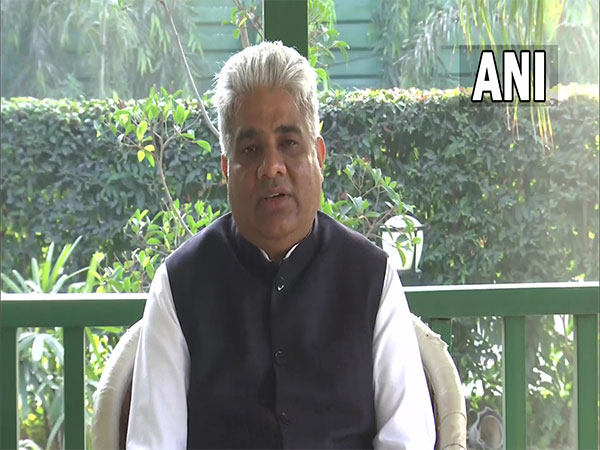Countries historically responsible for climate change cannot stall India's development: Bhupender Yadav
India is moving towards renewable energy but countries historically responsible for climate change cannot ask it to stop its development, Union Environment Minister Bhupender Yadav said on Tuesday.Addressing an event organised by trade association ASSOCHAM, he said India is free to use its resources to fulfil the energy needs of its people and historical polluters cannot decide what it needs to do.

- Country:
- India
India is moving towards renewable energy but countries historically responsible for climate change cannot ask it to stop its development, Union Environment Minister Bhupender Yadav said on Tuesday.
Addressing an event organised by trade association ASSOCHAM, he said India is free to use its resources to fulfil the energy needs of its people and historical polluters cannot decide what it needs to do. ''When we talk about stopping the use of fossil fuels... We say India is moving towards renewables. But it does not mean that those who emitted greenhouse gases for their growth in the past ask us to stop our development. ''We believe in both climate change and climate justice,'' Yadav said.
Countries historically responsible for climate change cannot decide how India uses its resources to fulfil the energy needs of its population, he said. The minister said India wants to fulfil the energy needs of the entire population and bring a change in their lives. ''We do not want to keep anyone in the dark. We have the power and freedom to decide how we use our energy resources. It's our decision. Those responsible for it (climate change) cannot be telling us what we need to do,'' he said.
Yadav said India is home to 17 per cent of the global population but accounts for only 4 per cent of global carbon emissions. At COP27 in Egypt's Sharm El Sheikh, India blocked an attempt by rich nations to focus on all top 20 greenhouse gas emitters during discussions on the 'Mitigation Work Programme'.
Developed countries desired that all top 20 emitters, including India and China, and not just the rich nations discuss intense emission cuts.
The Earth's global surface temperature has risen by around 1.15 degrees Celsius as compared to the pre-industrial (1850–1900) average and the CO2 spewed into the atmosphere since the start of the industrial revolution is closely tied to it. Major damage had already been done before the 1990s when economies like India started to develop, reports suggest.
According to the ''Global Carbon Budget Report - 2022'', more than half of the world's CO2 emissions in 2021 were from three places -- China (31 per cent), the US (14 per cent), and the European Union (eight per cent). Ranking at fourth, India accounted for 7 per cent of global CO2 emissions. However, at 2.4 tCO2e (tonne carbon dioxide equivalent), India's per capita greenhouse gas emission is far below the global average of 6.3 tCO2e, according to a report released last year by the United Nations Environment Programme.
Per capita emission in the US (14 tCO2e) is far above the global average, followed by Russia (13 tCO2e), China (9.7 tCO2e), Brazil and Indonesia (about 7.5 tCO2e each), and the European Union (7.2 tCO2e).
Yadav said the Intergovernmental Panel on Climate Change's ''Synthesis Report'' issued recently warned that no one will be able to stop the impact of climate change if action is not taken in the next few years.
(This story has not been edited by Devdiscourse staff and is auto-generated from a syndicated feed.)
ALSO READ
Hamas Calls for Immediate Ceasefire Talks with Egypt
Cross-Border Pursuit: Singapore Acts on Indonesia's Extradition Request
Global Cooking Oil Reformation: How Indonesia's Biodiesel Push Alters Palm Oil Market
Egypt's Inflation Rate Dips Dramatically
Indonesia's Missile Choice: Decision Hanging in the Balance










